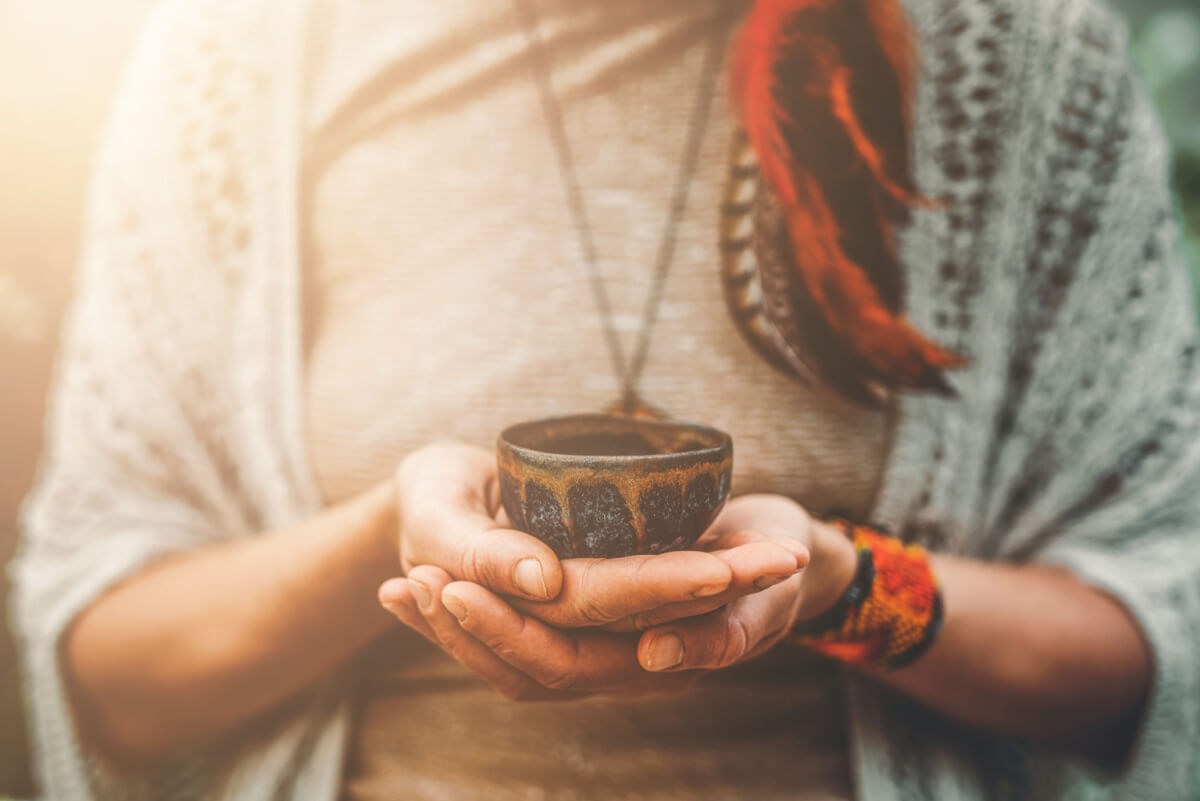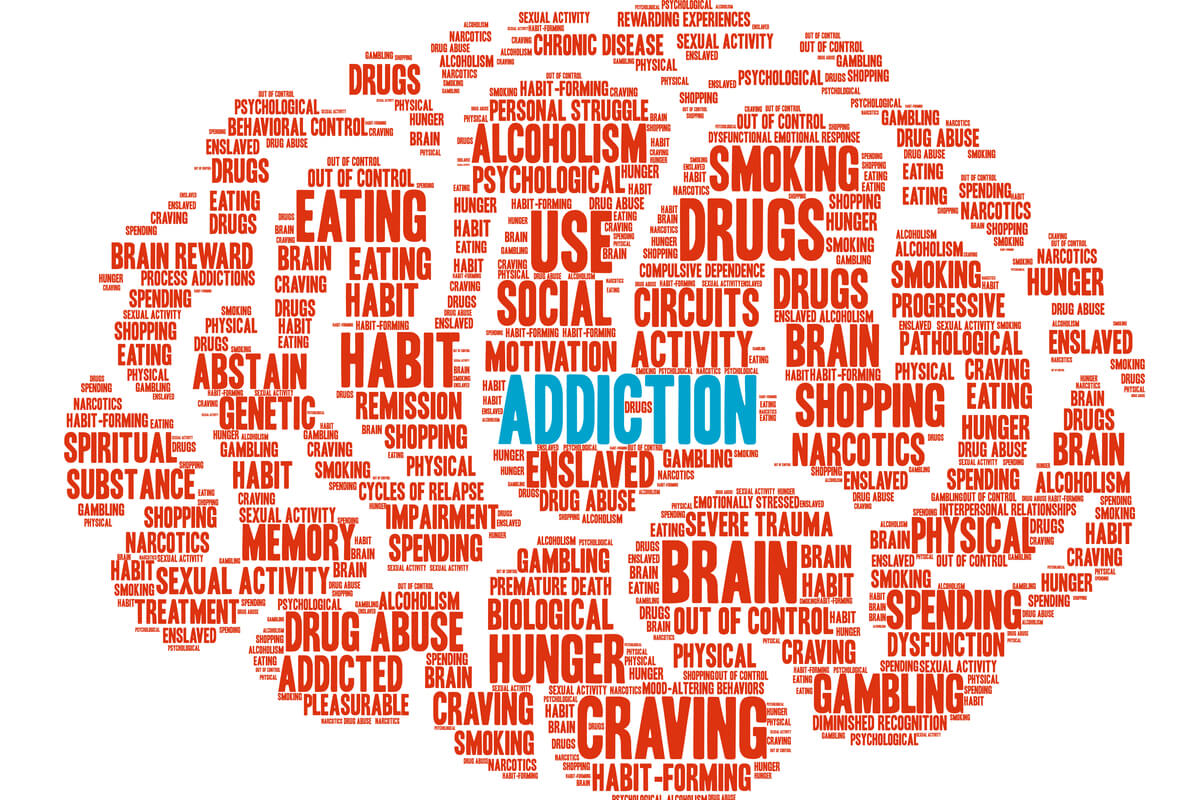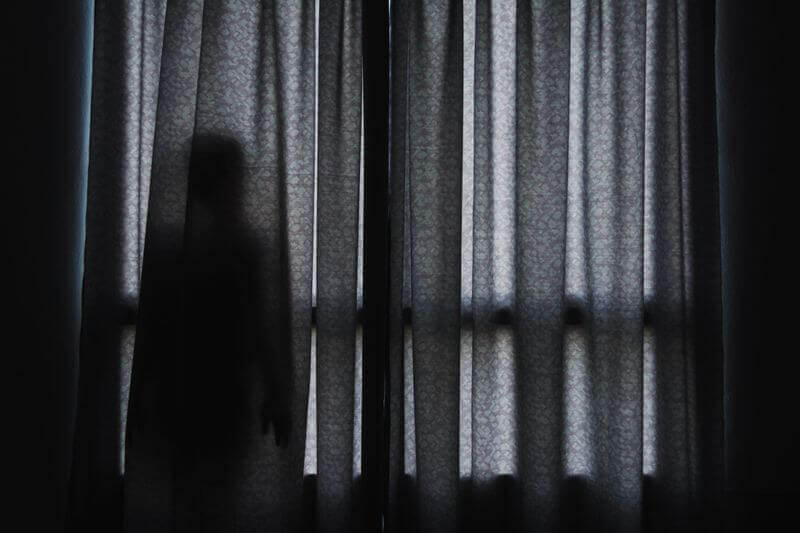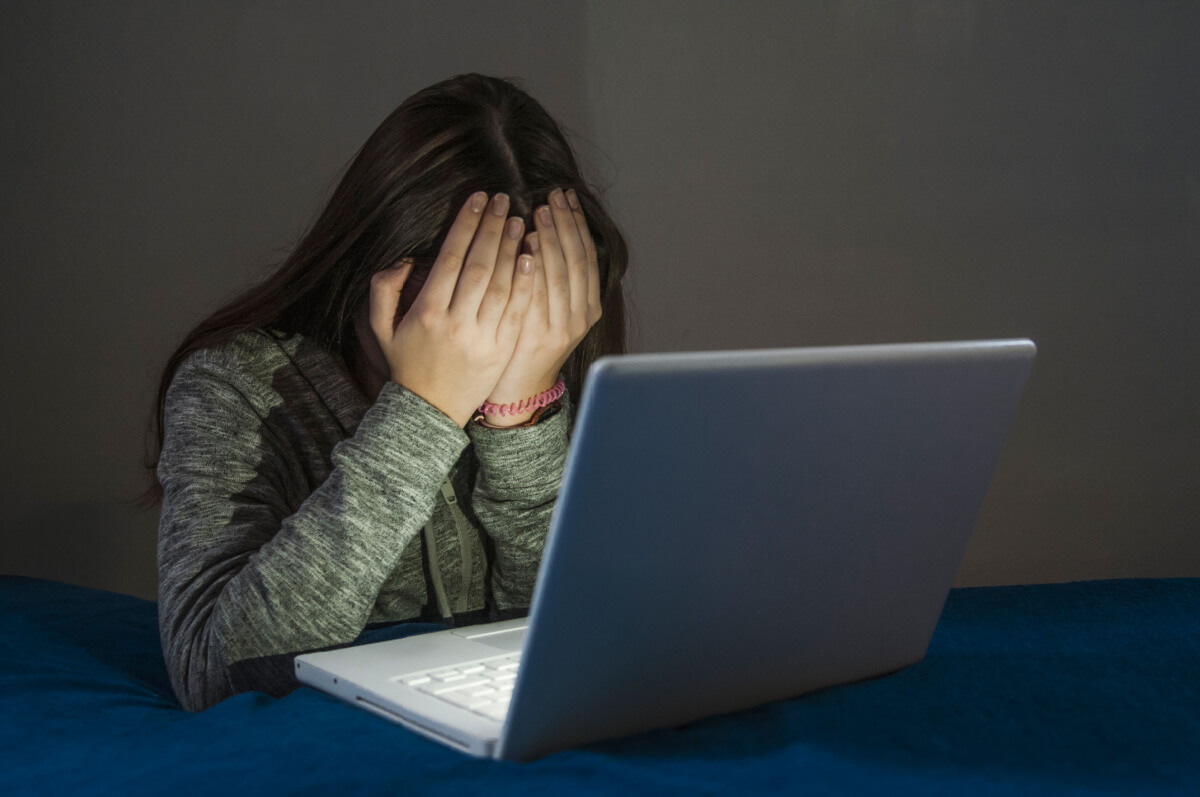
Ayahuasca’s dangers are mostly unknown. The drug likely has some genuine uses as a therapeutic substance, but it is understudied. Read more about Ayahuasca here.
What Is Ayahuasca?
Ayahuasca is a psychoactive drink, often just called a tea, made from the bark of the Banisteriopsis caapi vine and the leaves of the Psychotria viridis bush.[1] It has origins in indigenous South American religious rituals, and it has since widely spread as a type of folk medicine and spiritual healing. It is also sometimes used purely for the purpose of recreation.
Like many psychoactive substances, it is understudied and is the frequent subject of unverified claims about its potential healing properties. At the same time, it has shown some potential in treating various psychiatric disorders and addictions that has many experts calling for a more extensive look into the substance.[1]
How Does It Work?
The drug’s psychoactive properties come from beta-carboline alkaloids and DMT (N,N-dimethyltryptamine) derived from the two plants used to brew it. The combination of the monoamine-oxidase A (MAO-A) inhibiting properties of these substances can result in hallucinations.[2]
Because the drug has not yet been thoroughly studied, the way it works is not fully understood. It does seem that DMT can cause some pain relief and that using ayahuasca may have the potential to offer significant therapeutic benefits to those with treatment-resistant depression. It is possible that these therapeutic benefits occur because this drug can act as a partial agonist at 5-HT receptors.[2]
How Is Ayahuasca Classified?
In the United States, ayahuasca is considered a Schedule I substance, meaning the DEA considers the drug to have high abuse and addiction potential and no legitimate medical uses. This doesn’t appear to be based on scientific evidence, as ayahuasca use does not seem to be associated with long-term mental health consequences, although more research into the drug is still needed.
Ayahuasca is a psychoactive or hallucinogenic drug. These drugs have historically been regularly classified as more dangerous in the United States and many other countries compared to what science actually suggests about their properties.
Are There Benefits to Using Ayahuasca?
Ayahuasca use, at least in the right contexts, appears to potentially work as an addiction treatment and can also possibly help an individual’s mental health.[3] As mentioned earlier, it seems to help provide relief for those who struggle with treatment-resistant depression.
It needs to be emphasized that the medicinal use of ayahuasca has many unknowns. There isn’t an established recommendation for medicinal purposes at this time, at least in the US. [4]
Ayahuasca Side Effects
There don’t appear to be any deaths directly attributable to ayahuasca use. There have been some cases of poisoning due to the consumption of harmel seeds, regularly used in ayahuasca.
Deaths that have occurred related to ayahuasca or related drug use tend to be from taking additional substances unrelated to ayahuasca and/or due to physical accidents that occur when people are under the influence of the drug.
At least among ritual ayahuasca users, there doesn’t seem to be a major impact on long-term mental health and function as a result of ayahuasca use, although there has been limited formal research on this topic.
Addiction Potential
There doesn’t seem to be much indication that ayahuasca has significant addiction potential, which is fairly standard among other hallucinogenic substances.
Overall, Ayahuasca has been shown to have some potential to treat refractory depression and is often used for religious/spiritual purposes in other countries, but has not been widely studied here in the US. Because it is not readily available here in the US, we don’t know enough about the risks and benefits of this drug. It does not currently have any approved medical use at least in the United States.

Medically Reviewed By Elena Hill, MD, MPH
Elena Hill, MD; MPH received her MD and Masters of Public Health degrees at Tufts Medical School and completed her family medicine residency at Boston Medical Center. She is currently an attending physician at Bronxcare Health Systems in the Bronx, NY where ... Read More
- Ayahuasca: Psychological and Physiologic Effects, Pharmacology and Potential Uses in Addiction and Mental Illness. Current Neuropharmacology. https://www.ncbi.nlm.nih.gov/pmc/articles/PMC6343205/. February 2019. Accessed November 2022.
- Effects of Ayahuasca on Mental Health and Quality of Life in Naïve Users: A Longitudinal and Cross-Sectional Study Combination. Scientific Reports. https://www.nature.com/articles/s41598-020-61169-x. March 2020. Accessed November 2022.
- Ayahuasca’s Entwined Efficacy: An Ethnographic Study of Ritual Healing From ‘Addiction’. The International Journal on Drug Policy. https://www.ncbi.nlm.nih.gov/pmc/articles/PMC5773453/. June 2017. Accessed November 2022.
- A Placebo-Controlled Study of the Effects of Ayahuasca, Set and Setting on Mental Health of Participants in Ayahuasca Group Retreats. Psychopharmacology. https://link.springer.com/article/10.1007/s00213-021-05817-8. March 2021. Accessed November 2022.
Download Our Free Program Guide
Learn about our program, its effectiveness and what to expect
Related articles
Imagine what’s possible on the other side of opioid use disorder.
Our science-backed approach boasts 95% of patients reporting no withdrawal symptoms at 7 days. We can help you achieve easier days and a happier future.









